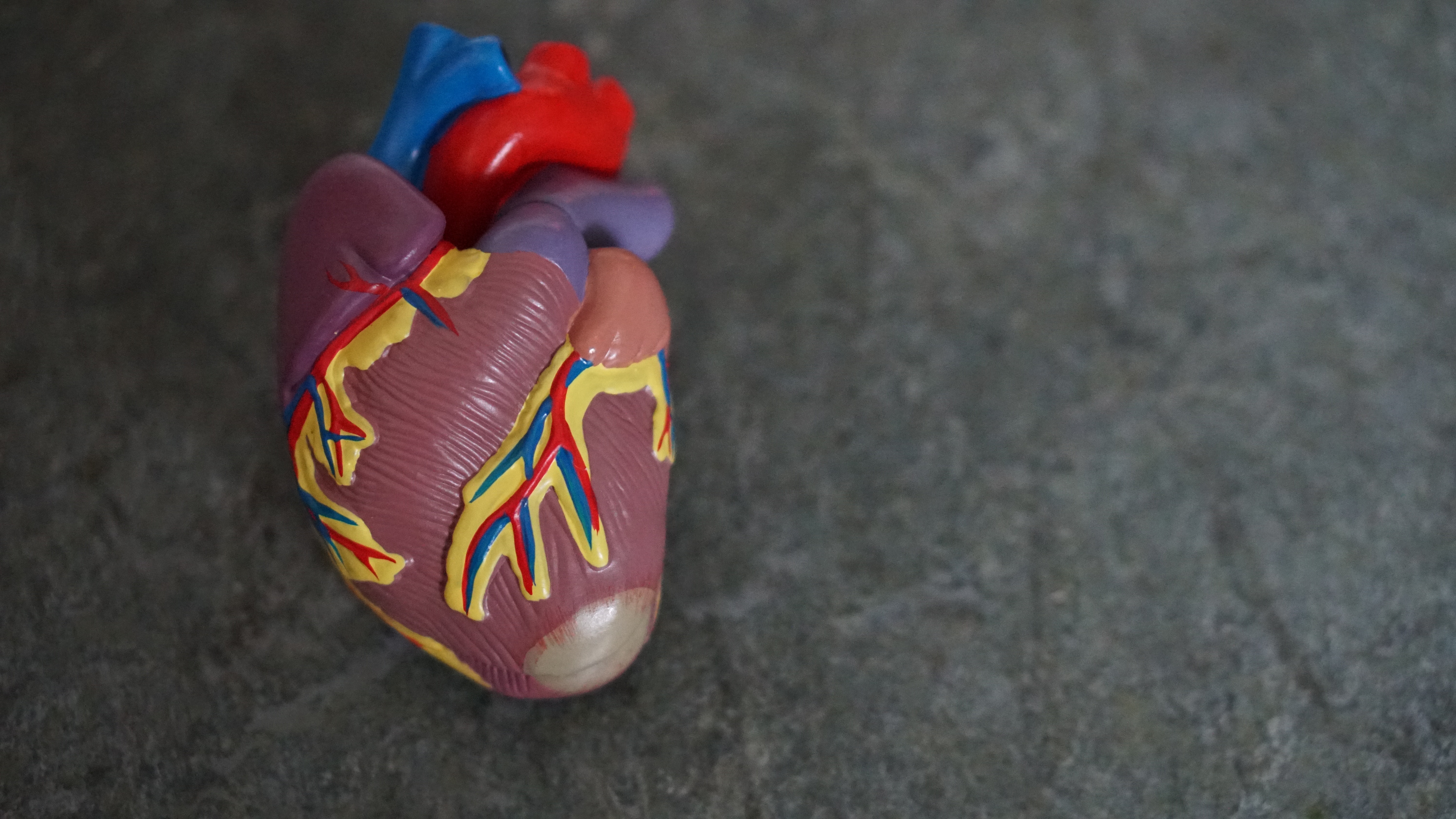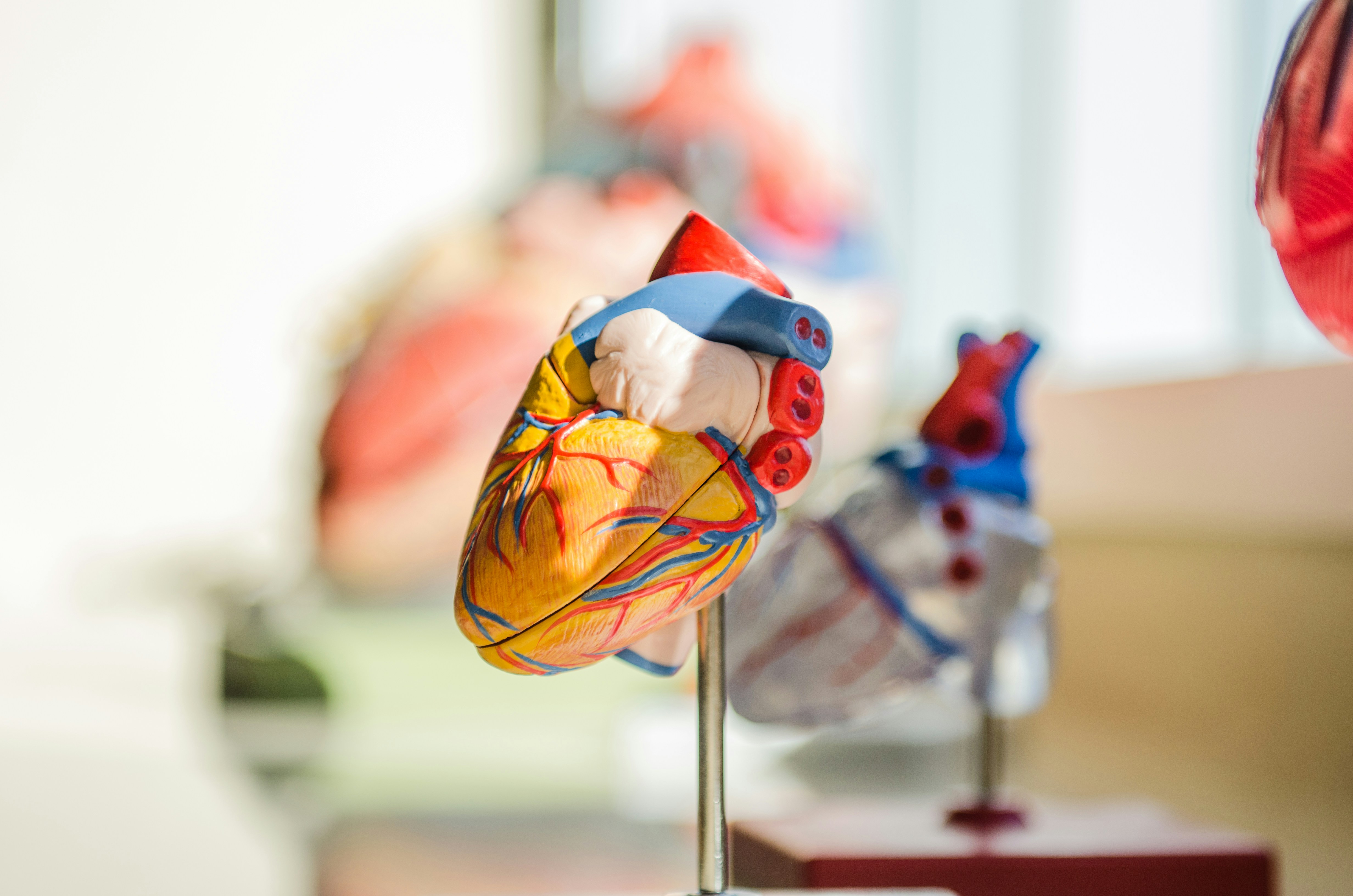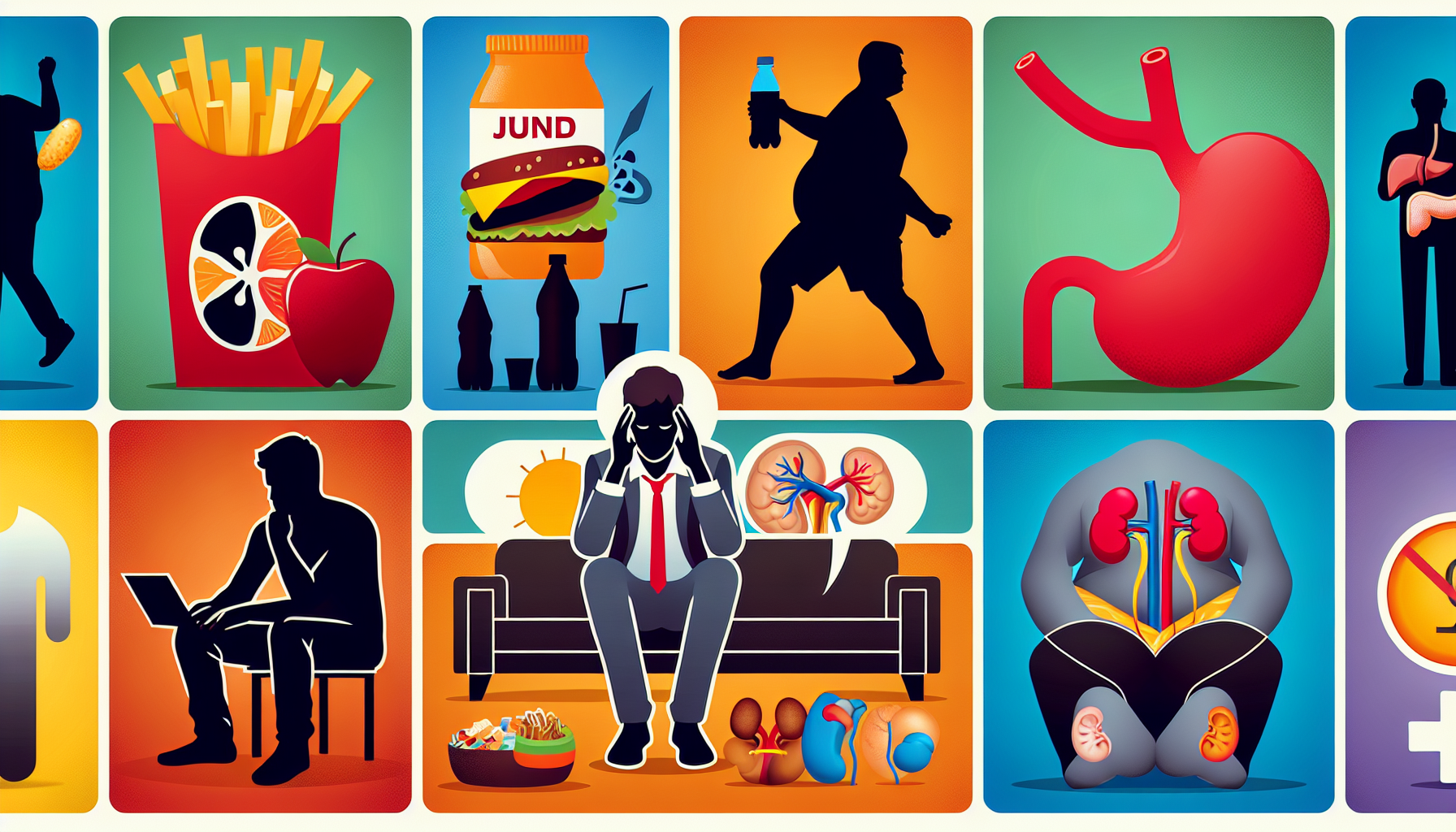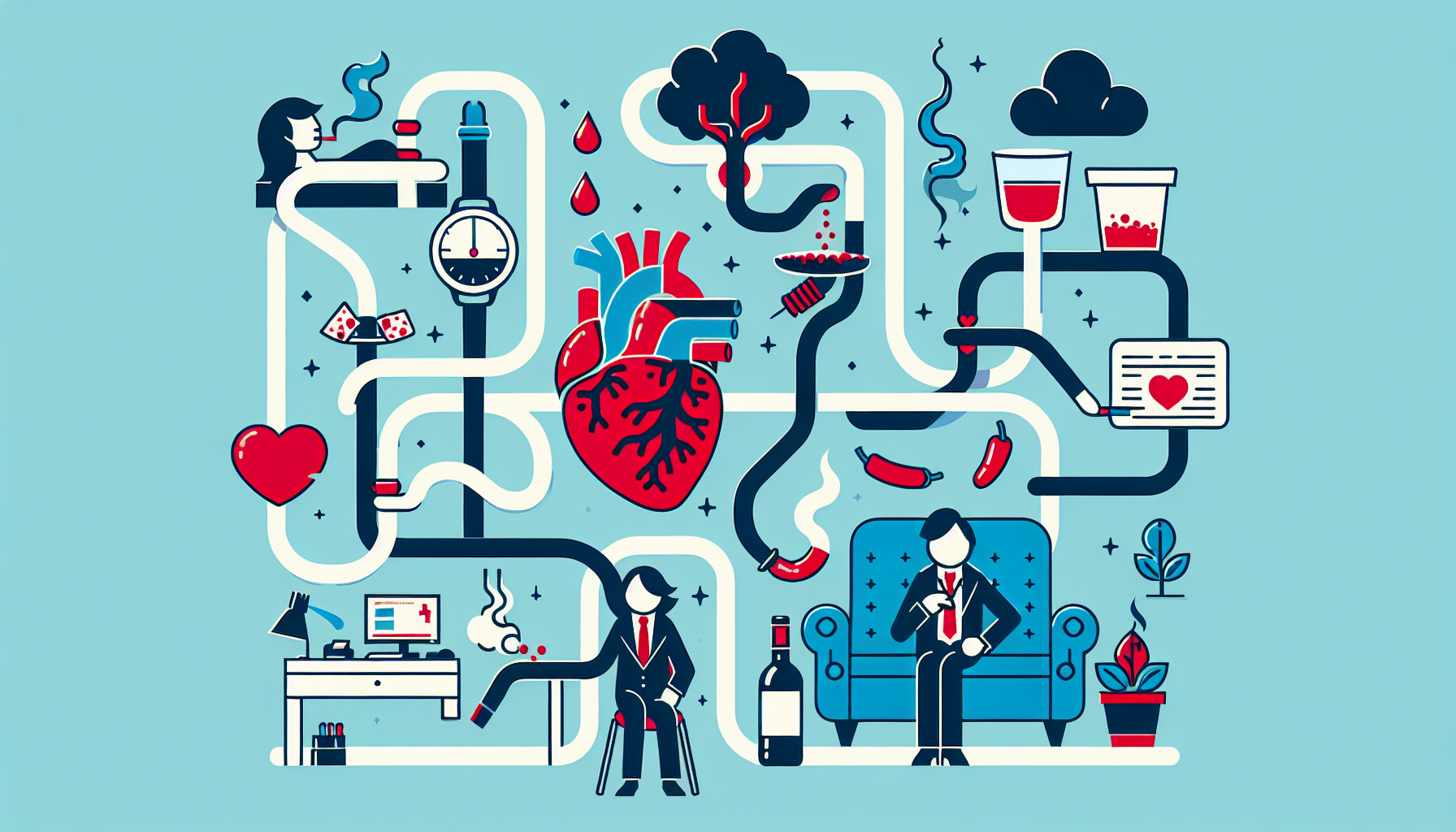High blood pressure, also known as hypertension, is a common health condition that affects millions of people worldwide. In this article, we will explore the main causes of hypertension and shed light on the factors that contribute to its development. By examining recent scientific studies, we will gain a deeper understanding of how certain lifestyle choices, genetic predispositions, and underlying health conditions can influence blood pressure levels. So, let’s embark on this informative journey to uncover the root causes of hypertension and discover ways to prevent and manage this prevalent condition.
What Are the Main Causes of Hypertension?
Hypertension, commonly known as high blood pressure, is a chronic medical condition that affects millions of people worldwide. It is a leading risk factor for cardiovascular diseases such as heart attacks and strokes. While there are several factors that contribute to the development of hypertension, it is essential to understand the main causes. This article aims to provide a comprehensive overview of the various factors that can lead to hypertension and the scientific studies that support their connection.
Discover the Ultimate Weight Loss Secrets Here!
1. Genetic Factors
1.1 Family History
Family history plays a crucial role in determining an individual’s predisposition to hypertension. Studies have shown that if both your parents have hypertension, you are at a higher risk of developing the condition compared to someone without a family history of the disease (1). This suggests that genetic factors contribute significantly to the development of hypertension. Therefore, it is essential to be aware of your family’s medical history, as it can help you take proactive steps to prevent or manage hypertension.
1.2 Genetic Mutations
Genetic mutations can also contribute to the development of hypertension. Recent scientific studies have identified specific gene variants associated with increased blood pressure levels (2). These mutations affect the functioning of proteins involved in regulating blood pressure, leading to hypertension. Understanding the genetic basis of hypertension can help in the development of targeted treatments and personalized approaches to managing the condition.
2. Unhealthy Diet
2.1 High Sodium Intake
Consuming a diet high in sodium is a well-established risk factor for hypertension. Excess sodium in the diet causes water retention, leading to increased blood volume and elevated blood pressure levels. Recent studies have further emphasized the detrimental effects of high sodium intake, linking it to an increased risk of hypertension and cardiovascular diseases (3). It is recommended to limit sodium intake and opt for a balanced diet rich in fruits, vegetables, and whole grains.
2.2 Low Potassium Intake
Potassium is a vital mineral that helps regulate blood pressure levels by counteracting the effects of sodium. Low potassium intake can disrupt this balance, leading to increased blood pressure. Studies have shown that individuals with low potassium levels are more likely to develop hypertension (4). Including potassium-rich foods like bananas, spinach, and avocados in your diet can help maintain optimal blood pressure levels.
2.3 Excessive Alcohol Consumption
Excessive alcohol consumption has been strongly linked to hypertension. Studies have consistently shown that heavy alcohol intake can raise blood pressure levels, increasing the risk of developing hypertension (5). The exact mechanisms behind this relationship are not fully understood, but it is believed that alcohol’s toxic effects on the cardiovascular system play a significant role. It is advisable to consume alcohol in moderation or avoid it altogether to prevent hypertension.
2.4 High Fat and Cholesterol Consumption
A diet high in saturated and trans fats, as well as cholesterol, contributes to the development of hypertension. Scientific studies have demonstrated the negative impact of a high-fat diet on blood pressure regulation (6). Excessive consumption of these unhealthy fats can lead to obesity, arterial stiffness, and inflammation, all of which contribute to hypertension. It is crucial to adopt a heart-healthy diet that focuses on lean proteins, whole grains, and healthy fats like those found in nuts and olive oil.
Click Here for Proven Fat-Burning Strategies!
3. Sedentary Lifestyle
3.1 Lack of Physical Activity
Engaging in regular physical activity is a proven way to prevent and manage hypertension. A sedentary lifestyle, on the other hand, increases the risk of developing the condition. Numerous scientific studies have highlighted the protective effects of physical activity against hypertension (7). Exercise helps maintain a healthy weight, improves cardiovascular health, and enhances blood vessel function. Incorporating at least 150 minutes of moderate-intensity exercise into your weekly routine can significantly reduce the risk of hypertension.
3.2 Prolonged Sitting
Aside from low physical activity levels, prolonged sitting is an independent risk factor for hypertension. Recent research has indicated that prolonged periods of sitting, especially without breaks for movement, can significantly increase blood pressure levels (8). Even if you engage in regular exercise, excessive sitting can undermine its effects on blood pressure control. It is recommended to break up long periods of sitting with short walks or stretches to minimize the risk of hypertension.
4. Obesity
4.1 Excess Body Weight
Obesity is a well-established risk factor for hypertension and other cardiovascular diseases. Excess body weight puts additional stress on the heart and blood vessels, leading to an increased risk of hypertension. Studies have consistently shown that individuals with obesity are more likely to develop hypertension compared to those with healthy body weight (9). Losing weight through a combination of healthy eating and regular exercise is essential in managing and preventing hypertension.
4.2 Central Obesity
Central obesity, defined as excess fat accumulation around the waist, is particularly associated with an increased risk of hypertension. Recent scientific studies have linked central obesity to various metabolic abnormalities, including insulin resistance and dyslipidemia, which contribute to the development of hypertension (10). Maintaining a healthy waist circumference through lifestyle modifications can help reduce the risk of hypertension.

5. Chronic Stress
5.1 Psychological Stress
Chronic psychological stress can have a detrimental impact on blood pressure regulation. Prolonged exposure to stress triggers physiological responses that can contribute to the development of hypertension. Scientific studies have demonstrated the associations between chronic psychological stress and elevated blood pressure levels (11). Practicing stress-management techniques like mindfulness, meditation, and regular relaxation can help mitigate the effects of stress on blood pressure.
5.2 Work-related Stress
In addition to general psychological stress, work-related stress can also contribute to hypertension. Recent research has indicated a link between high job strain, defined as a combination of high demands and low control at work, and an increased risk of hypertension (12). It is important to address work-related stressors and seek a healthy work-life balance to protect against hypertension.
6. Smoking and Tobacco Use
6.1 Cigarette Smoking
The harmful effects of cigarette smoking on cardiovascular health are well-known, with hypertension being one of the potential consequences. Smoking causes blood vessels to narrow, leading to increased blood pressure levels. Scientific studies have consistently shown the association between smoking and hypertension (13). Quitting smoking is crucial in reducing the risk of hypertension and improving overall cardiovascular health.
6.2 Smokeless Tobacco Products
Smokeless tobacco products, such as chewing tobacco and snuff, also contribute to the development of hypertension. Studies have indicated that smokeless tobacco users are at a higher risk of hypertension compared to non-users (14). These products contain nicotine, which raises blood pressure levels and increases cardiovascular strain. Steering clear of smokeless tobacco is vital in preventing hypertension and its associated complications.

7. Age
7.1 Aging Process
As individuals age, the risk of developing hypertension increases. The exact mechanisms behind this age-related increase in blood pressure are not fully understood, but it is believed to involve changes in blood vessel structure and function (15). Recent scientific studies have highlighted the significance of age in the development of hypertension, emphasizing the need for regular blood pressure monitoring and lifestyle modifications as individuals grow older.
7.2 Arteries and Blood Vessels
The structural and functional changes in arteries and blood vessels that occur with age play a significant role in hypertension. Studies have shown that aging is associated with an increased arterial stiffness, reduced elasticity, and impaired blood vessel function (16). These changes contribute to higher blood pressure levels and an elevated risk of hypertension. Regular exercise, a healthy diet, and lifestyle modifications can help mitigate the effects of aging on blood pressure regulation.
8. Gender
8.1 Differences in Hormonal Regulation
Gender differences in hormonal regulation contribute to the varying prevalence of hypertension between men and women. Scientific studies have suggested that estrogen, the primary female sex hormone, has a protective effect on blood vessels, reducing the risk of hypertension (17). However, after menopause, when estrogen levels decline, the risk of hypertension in women catches up to that of men. Understanding these hormonal differences can influence preventive strategies and treatment approaches for hypertension.
8.2 Menopause
Menopause, characterized by the cessation of menstruation, brings about hormonal changes that increase the risk of hypertension in women. Recent research has indicated that menopause is associated with higher blood pressure levels and a greater likelihood of developing hypertension (18). Lifestyle modifications, such as regular exercise and a healthy diet, become even more critical during and after menopause to preserve cardiovascular health and prevent hypertension.

9. Ethnicity
9.1 African Americans
African Americans have a higher prevalence of hypertension compared to other ethnic groups. Studies have shown that African Americans tend to develop hypertension at an earlier age and have more severe cases compared to Caucasians (19). The exact reasons for these disparities are multifactorial, including genetic, environmental, and socioeconomic factors. Recognizing and targeting these factors can help address the disproportionate burden of hypertension within this ethnic population.
9.2 Hispanics and Latinos
Hypertension is also more prevalent among Hispanics and Latinos compared to other ethnic groups. Scientific studies have suggested that genetic factors, cultural practices, and dietary patterns can contribute to this increased risk (20). Additionally, socioeconomic factors and limited access to healthcare may influence the prevalence and management of hypertension within the Hispanic and Latino communities. Culturally tailored interventions and improved healthcare access are vital in addressing this disparity.
9.3 Asians and Pacific Islanders
While hypertension rates may be lower among Asians and Pacific Islanders compared to other ethnic groups, certain subgroups within these populations have a higher risk. Recent studies have highlighted the heterogeneity within the Asian and Pacific Islander populations, with varying hypertension rates among different ethnic subgroups (21). Factors such as genetics, lifestyle, and cultural practices contribute to these disparities. It is crucial to consider these factors when developing prevention and management strategies targeting specific Asian and Pacific Islander populations.
10. Certain Medical Conditions
10.1 Diabetes
Individuals with diabetes are at a significantly higher risk of developing hypertension. The relationship between diabetes and hypertension is bidirectional, meaning each condition can worsen the other. Scientific studies have shown that the presence of both conditions increases the risk of cardiovascular complications (22). Effective management of diabetes and maintaining optimal blood glucose levels are essential in preventing and managing hypertension in individuals with diabetes.
10.2 Kidney Disease
Chronic kidney disease is strongly associated with hypertension. The kidneys play a critical role in regulating blood pressure levels, and any impairment in kidney function can disrupt this balance. Studies have demonstrated that kidney disease can cause hypertension, and conversely, hypertension can contribute to kidney damage (23). Early detection and management of kidney disease are essential in preventing the development or progression of hypertension.
10.3 Sleep Apnea
Sleep apnea, a sleep disorder characterized by pauses in breathing or shallow breathing during sleep, has been linked to hypertension. Scientific studies have shown that individuals with sleep apnea have a higher prevalence of hypertension compared to the general population (24). The exact mechanisms behind this association are not fully understood, but it is believed that sleep-related breathing disturbances contribute to increased sympathetic activity and disrupted blood pressure regulation. Treating sleep apnea through lifestyle modifications or the use of continuous positive airway pressure (CPAP) can help control blood pressure levels.
10.4 Thyroid Disorders
Certain thyroid disorders, such as hypothyroidism and hyperthyroidism, can affect blood pressure regulation and contribute to the development of hypertension. Studies have suggested that both hypo- and hyperthyroidism are associated with increased blood pressure levels (25). Proper management and treatment of thyroid disorders are important in preventing or controlling hypertension in individuals with these conditions.
In conclusion, hypertension has multifactorial causes that involve a complex interplay of genetic, lifestyle, and environmental factors. Understanding the main causes of hypertension can help individuals make informed choices and take proactive steps to prevent or manage the condition effectively. By addressing the genetic factors, adopting a healthy diet, maintaining a physically active lifestyle, managing stress, avoiding tobacco use and excessive alcohol consumption, and addressing specific medical conditions, the risk of developing hypertension can be significantly reduced. Regular blood pressure monitoring, routine medical check-ups, and adherence to prescribed medications are equally important in the prevention and management of hypertension. Remember, your choices and efforts play a pivotal role in maintaining optimal blood pressure levels and safeguarding your overall cardiovascular health.


